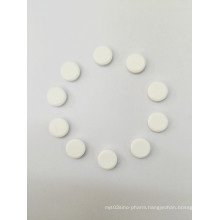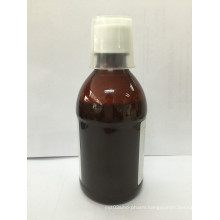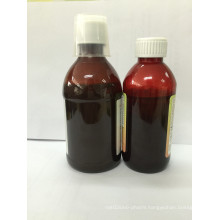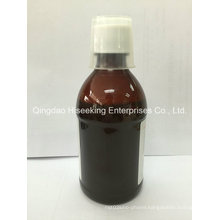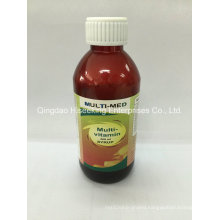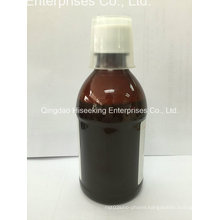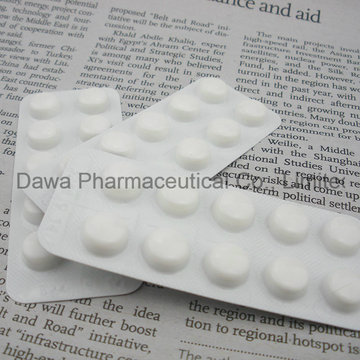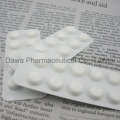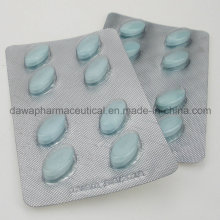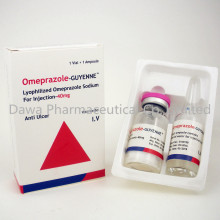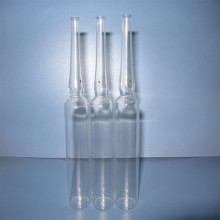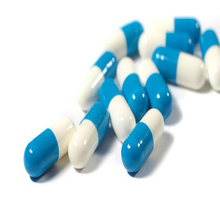100mg Antidiabetic Drug Sitagliptin Tablet for Antihyperglycemic
Basic Info
Model No.: DAWAADS0001
Product Description
Model NO.: DAWAADS0001
Usage Mode: For oral administration
State: Solid
Type: Biological Products
Administration Route: Oral
OEM: Acceptable
Trademark: GUYENNE
Origin: France
Application: Internal Medicine
Suitable for: Adult
Shape: Tablet
Pharmaceutical Technology: Chemical Synthesis
MOQ: 1 Box
Sample: Free Supply
Specification: 100mg
HS Code: 3003101200
100mg Antidiabetic Drug Sitaglitin Tablet for Antihyperglycemic
Sitagliptin , previously identified as MK-0431 and marketed as the phosphate salt under the trade name Januvia) is an oral antihyperglycemic (antidiabetic drug) of the dipeptidyl peptidase-4 (DPP-4) inhibitor class. It was developed, and is marketed, by Merck & Co. This enzyme-inhibiting drug is used either alone or in combination with other oral antihyperglycemic agents (such as metformin or a thiazolidinedione) for treatment of diabetes mellitus type 2.
Adverse effects
Side effects are as common with sitagliptin (whether used alone or with metformin or pioglitazone) as they were with placebo, except for rare nausea and common cold-like symptoms, including photosensitivity. There is no significant difference in the occurrence of hypoglycemia between placebo and sitagliptin. In those taking sulphonylureas there is an increased risk of low blood sugar.
There have been several postmarketing reports of pancreatitis (some fatal) in people treated with sitagliptin and other DPP-4 inhibitors, and the U.S. package insert carries a warning to this effect, although the causal link between sitagliptin and pancreatitis has not yet been fully substantiated.One study with lab rats published 2009 concluded that some possible risks of pancreatitis, or pancreatic cancer from sitagliptin may be reduced when it is used with metformin. However, while DPP-4 inhibitors show an increase in such risk factors, as of 2009, there is no reported increase in pancreatic cancer in individuals taking DPP-4 inhibitors.
They may cause severe joint pain.
The existence of rare case reports of renal failure and hypersensitivity reactions is noted in the United States prescribing information, but a causative role for sitagliptin has not been established.
Mechanism of action
Sitagliptin works to competitively inhibit the enzyme dipeptidyl peptidase 4 (DPP-4). This enzyme breaks down the incretins GLP-1 and GIP, gastrointestinal hormones released in response to a meal.By preventing GLP-1 and GIP inactivation, they are able to increase the secretion of insulin and suppress the release of glucagon by the alpha cells of the pancreas. This drives blood glucose levels towards normal. As the blood glucose level approaches normal, the amounts of insulin released and glucagon suppressed diminishes, thus tending to prevent an "overshoot" and subsequent low blood sugar (hypoglycemia) which is seen with some other oral hypoglycemic agents.
Sitagliptin has been shown to lower HbA1c level by about 0.7% points versus placebo. It is slightly less effective than metformin when used as a monotherapy. It does not cause weight gain and has less hypoglycemia compared to sulfonylureas. Sitagliptin is recommended as a second line drug (in combination with other drugs) after the combination of diet/exercise and metformin fails Contact us if you need more details on Sitaglitin. We are ready to answer your questions on packaging, logistics, certification or any other aspects about Antidiabetic、Antihyperglycemic. If these products fail to match your need, please contact us and we would like to provide relevant information.
Product Categories : Gastro-Intestinals Drug
Other Products
Hot Products
High Quality 200mg Amiodarone Hydrochloride TabletsLarge Stock Whiten Skin Monobenzone CreamGeneral Medicine Omeprazole 20mg Injection for Gastrohelcosis and Stomach AcidGeneral Medicine Ceftriaxone Sodium InjectionReady Stock Skin Whitening Anti-Aging Vitamin C InjectionOEM Tablet 500mg ParacetamolHigh Quality 500mg Hard Capsules Amoxicillin (amoxycillin)Best and Low Price Ceftriaxone Sodium Injection CeftriaxoneBest Quality Omega 3 Deep Sea Softgel Capsule Fish OilFDA Approved Curative Antimalarial ArtemisininMedicine Treating Brain Injury Citicoline Sodium InjectionProtease Alpha Chymolase for Inflammatory EdemaGeneral Medicine Medroxyprogesterone Acetate InjectionAmikacin Injection General Medicine DrugsSkin Whitening Gsh Personal Care Glutathione InjectionBody Slimming Fitness Lose Weight Weight Loss L-Carnitine Injection2.0g/5ml
